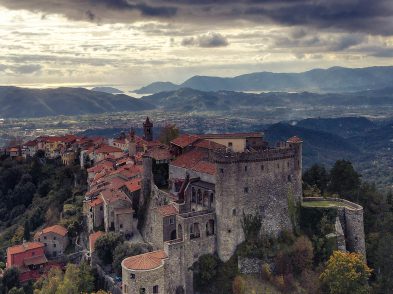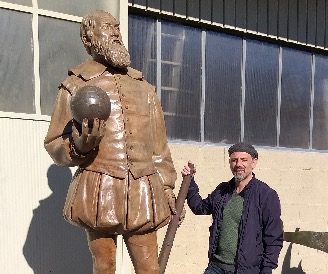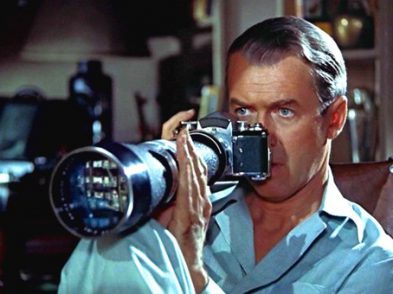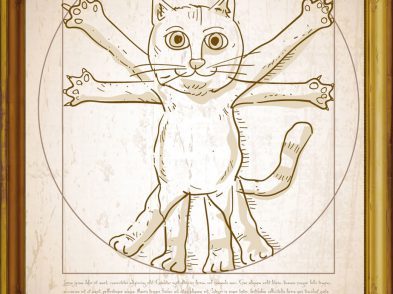Life is good for Pisa native Dario Marianelli—after winning a Golden Globe in January, he can now add an Oscar to his collection for the Best Original Score for Joe Wright’s latest film, Atonement. The composer sat down with The Florentine’s Margreta Moss in London to discuss inspiration, innovation and the little things he misses most from Tuscany.
In your work, how important is the preparation process compared to the luck you need in order to ‘break through’?
As a percentage? I wouldn’t know, but it would be difficult to even define what ‘preparation’ is. It is a very ‘prismatic’ job: one can be diplomatic, but also feel like a therapist, or even psychologist when composing music for a film. Even in musical terms, being prepared probably relies on the relationship the composer has developed with the characters of the story. This has little to do with the technical side of writing down musical notes. Luck, however, plays an important role: every once in a while an opportunity comes along that could take you further up the ladder, and you must be ready to grab it. But there aren’t just ‘once-in-a-lifetime’ opportunities.
What was your big break?
There have been a few, and even the ones I’ve taken most for granted could not have occurred without previous experiences, both positive or negative. Certainly my encounter with Terry Gilliam in 2004 was important, as well as the one with Joe Wright in the same year.
Can you tell us about your experience with directors?
The best results come from teamwork and dialogue. Not from a void, but from a group of people who concentrate on telling a good story. The directors and producers I’ve worked with were smart enough to realize that their best results come through collaboration with the staff. There is autonomy in the work, but that depends more on the parameters of the story rather than the director’s style.
What is the basis of your musical knowledge? Does it include education, disposition, technique, stubbornness, discipline, inspiration?
A bit of all these things, I suppose, as well as the ability to work with other people. One must feel the desire to communicate with the public and enjoy listening to as well as telling stories.
Has living abroad enhanced your development as a composer? Your career?
I don’t know, but a lot of Italian musicians have paved the way and are working hard to be known, in or out of Italy.
Does Italy, home of great composers and operas, still provide a foundation for young talent? Should music have more emphasis in the schools?
There is plenty of culture in Italy, but perhaps musical education has not been adequate. It is up to the individual to learn, and the advantages of conservatories and private tutoring are present and important.
What have you learned from your experience in London?
I’ve learned that a bit of chaos is useful in life, and that it’s more important to simply do things rather than spending lots of time aspiring for a diploma.
You were born in Pisa. What do still carry from your roots?
My love for stoccafisso with potatoes. However, I think one’s birth roots are of relative importance. I was raised in a mixture of cultures and gathered a bit from everywhere, not only Pisa.
Are there any recent Italian movies for which you would have liked to have helped make the soundtrack?
Two that come to mind are La Bestia Nel Cuore and La Meglio Gioventù. Both have beautiful music, and I don’t think I could have done better.
Among the soundtracks you’ve worked on, which gave you more satisfaction and which gave you more problems?
Satisfaction comes from solving problems. A very difficult but satisfactory project was Pandemonium, where, for the first time, I found myself in a ‘politically’ complicated situation, but it ended well. Even The Brothers Grimm was very complicated because in the beginning I didn’t understand the size of the project. I found out as it developed, and in the end I felt I had matured as a composer and learned a lot from it.
What themes inspire you most? Do you have a preference? Is it possible to compose music for a film that you don’t like?
I don’t have any specific preferences. I enjoy new situations with new problems that require fresh solutions. Obviously it’s possible to compose for films I don’t like, though I try to avoid those situations. However, it has happened, and I try to do my best to make the music work.
What is the perfect balance between sound and vision? How do you approach your work?
There are no rules: I treat each situation differently. Sometimes there’s an opportunity to use sound in a more creative way. For example, in Atonement we decided to experiment with sounds extracted from within the story, like the tapping of a typewriter, and inserted into the music. But not all films adapt to these experiments.
Have you ever thought in composing a musical?
No, not seriously.
Do you have a favorite composer?
Beethoven’s music still inspires me, not just as a pastime to play on the piano, but because it makes me think about the relationship between music and narrative.
What does a person from Pisa miss most when living abroad?
I don’t feel I’m living abroad at all. I’ve been living in London for 18 years now, and I feel at home, like in Pisa.
Because of the historical rivalry between Pisa and Livorno, would you ever compose for a director with such origin?
DM: Please, I haven’t lost my dignity! I’m joking, but are there movies in Livorno?
Do you agree with the saying that Tuscans have ‘heaven in their eyes and hell in their mouths’?
Because they curse a lot and freely? Every now and again you hear very vulgar but very creative curses. There should be a contest for the most original profanity. I hate to admit it, but people from Livorno have the most imagination when it comes to blasphemy.








